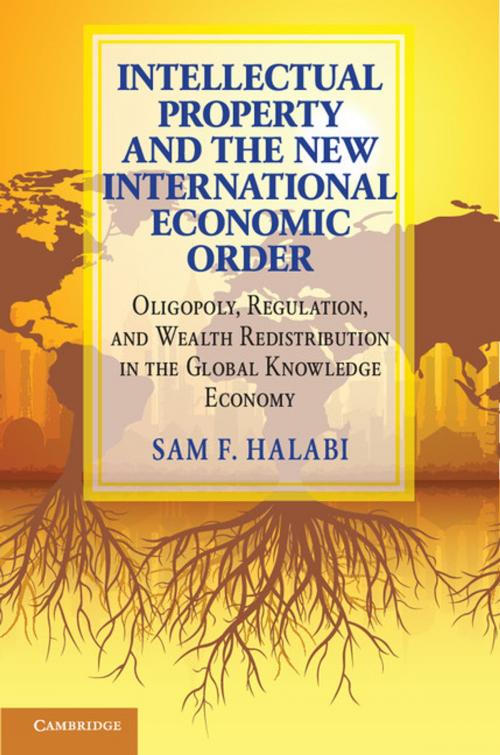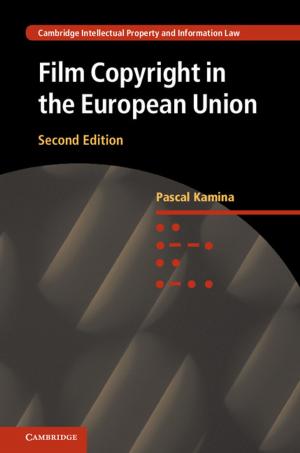Intellectual Property and the New International Economic Order
Oligopoly, Regulation, and Wealth Redistribution in the Global Knowledge Economy
Nonfiction, Reference & Language, Law, Intellectual Property, Social & Cultural Studies, Political Science| Author: | Sam F. Halabi | ISBN: | 9781316832417 |
| Publisher: | Cambridge University Press | Publication: | April 30, 2018 |
| Imprint: | Cambridge University Press | Language: | English |
| Author: | Sam F. Halabi |
| ISBN: | 9781316832417 |
| Publisher: | Cambridge University Press |
| Publication: | April 30, 2018 |
| Imprint: | Cambridge University Press |
| Language: | English |
In economic sectors crucial to human welfare—agriculture, education, and medicine—a small number of firms control global markets, primarily by enforcing intellectual property (IP) rights incorporated into trade agreements made in the 1980s onward: such rights include patents on seeds and medicines, copyrights for educational texts, and trademarks in consumer products. According to conventional wisdom, these agreements likewise ended hopes for a “New International Economic Order,” under which wealth would be redistributed from rich countries to poor. In this book, Sam Halabi turns this conventional wisdom on its head by demonstrating that the New International Economic Order never faded, but rather was redirected by other treaties, formed outside the nominally economic sphere, that protected poor countries' interests in education, health, and nutrition, and resulted in redistribution and regulation. This illuminating book should be read by anyone seeking a nuanced view of how IP is shaping the global knowledge economy.
In economic sectors crucial to human welfare—agriculture, education, and medicine—a small number of firms control global markets, primarily by enforcing intellectual property (IP) rights incorporated into trade agreements made in the 1980s onward: such rights include patents on seeds and medicines, copyrights for educational texts, and trademarks in consumer products. According to conventional wisdom, these agreements likewise ended hopes for a “New International Economic Order,” under which wealth would be redistributed from rich countries to poor. In this book, Sam Halabi turns this conventional wisdom on its head by demonstrating that the New International Economic Order never faded, but rather was redirected by other treaties, formed outside the nominally economic sphere, that protected poor countries' interests in education, health, and nutrition, and resulted in redistribution and regulation. This illuminating book should be read by anyone seeking a nuanced view of how IP is shaping the global knowledge economy.















